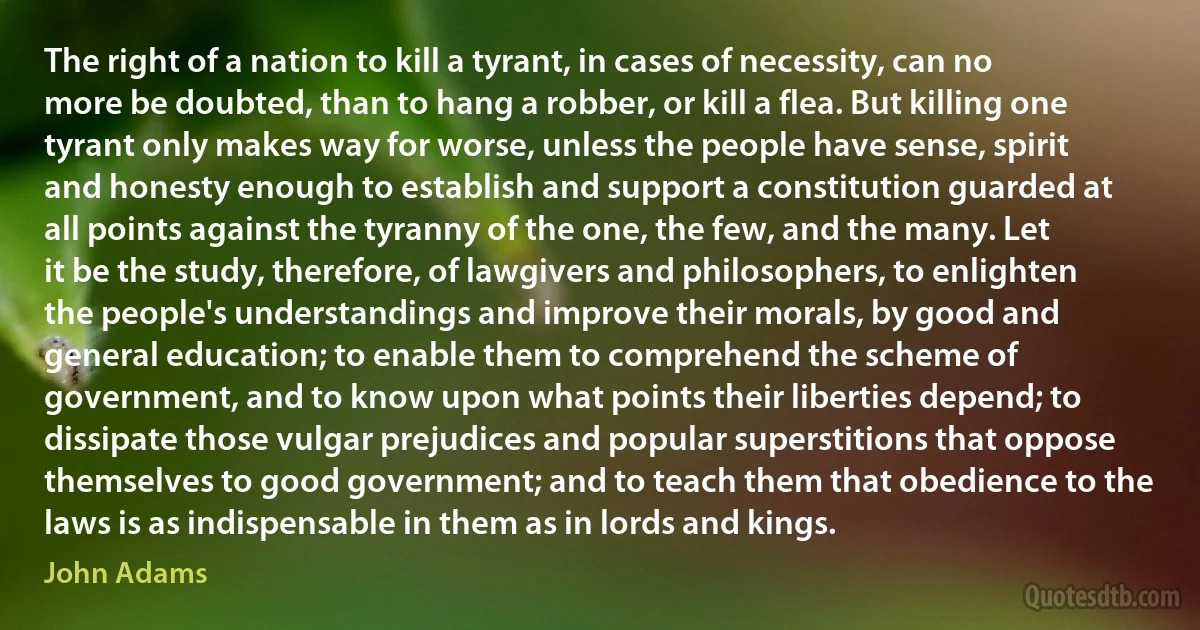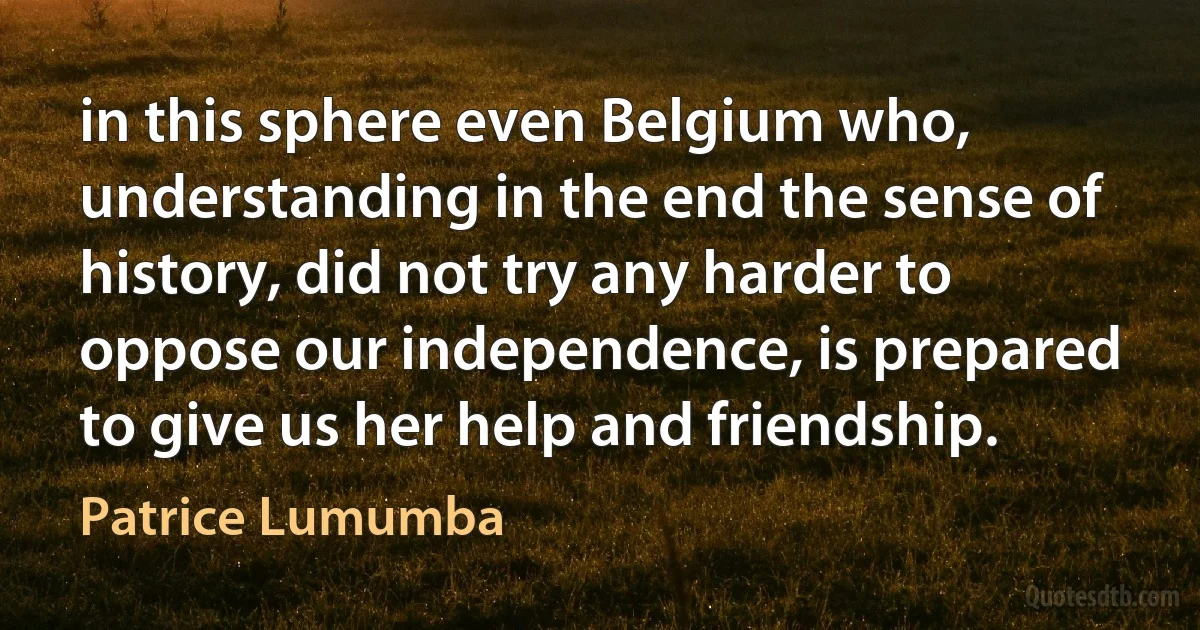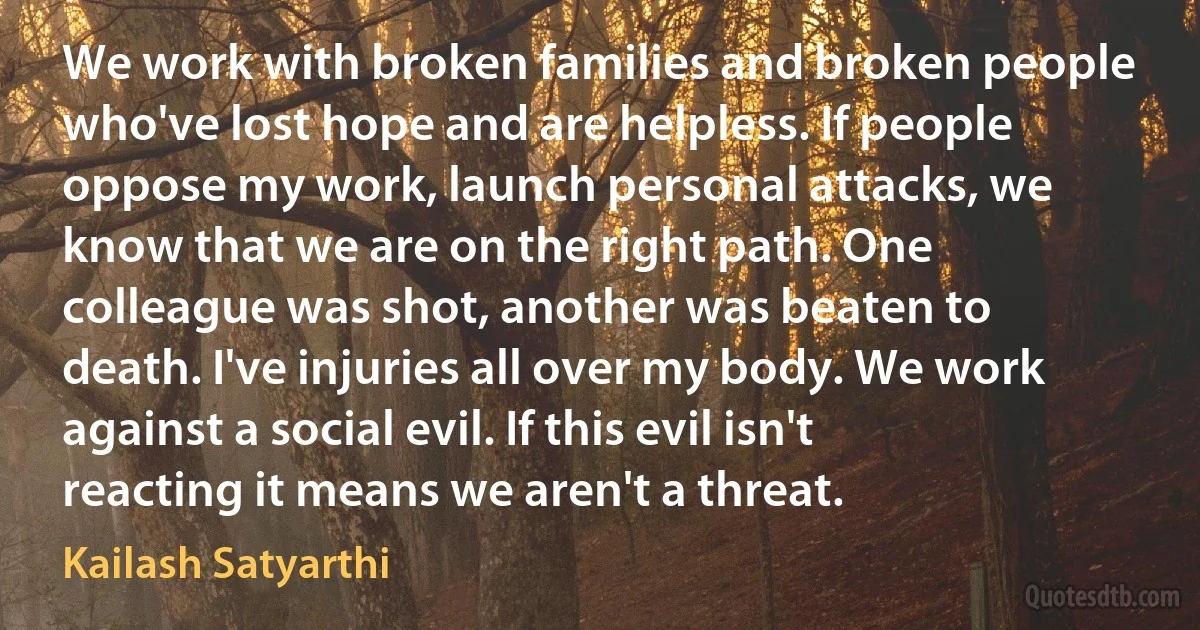Oppose Quotes - page 15
What a stupendous, what an incomprehensible machine is man! Who can endure toil, famine, stripes, imprisonment and death itself in vindication of his own liberty, and the next moment, be deaf to all those motives whose powers supported him through his trial, and inflict on his fellow men a bondage, one hour of which is fraught with more misery than ages of that which he rose in rebellion to oppose.

Thomas Jefferson
With respect to the new Government, nine or ten States will probably have accepted by the end of this month. The others may oppose it. Virginia, I think, will be of this number. Besides other objections of less moment, she [Virginia] will insist on annexing a bill of rights to the new Constitution, i.e. a bill wherein the Government shall declare that, 1. Religion shall be free; 2. Printing presses free; 3. Trials by jury preserved in all cases; 4. No monopolies in commerce; 5. No standing army. Upon receiving this bill of rights, she will probably depart from her other objections; and this bill is so much to the interest of all the States, that I presume they will offer it, and thus our Constitution be amended, and our Union closed by the end of the present year.

Thomas Jefferson
Should an unwarrantable measure of the federal government be unpopular in particular States, which would seldom fail to be the case, or even a warrantable measure be so, which may sometimes be the case, the means of opposition to it are powerful and at hand. The disquietude of the people; their repugnance and, perhaps, refusal to co-operate with the officers of the Union; the frowns of the executive magistracy of the State; the embarrassments created by legislative devices, which would often be added on such occasions, would oppose, in any State, difficulties not to be despised; would form, in a large State, very serious impediments; and where the sentiments of several adjoining States happened to be in unison, would present obstructions which the federal government would hardly be willing to encounter.

James Madison
Whether religion is a divisive or reconciling force depends on our certainty or our humility as we practice our faith in our politics. If we believe that we know God's truth and that we can embody that truth in a political agenda, we divide the realm of politics into those who are on God's side, which is our side, and those with whom we disagree, who oppose the side of God. This is neither good religion nor good politics. It is not consistent with following a Lord who reached out to a variety of people - prostitutes, tax collectors, lepers. If politics is the art of compromise, certainty is not really politics, for how can one compromise with God's own truth? Reconciliation depends on acknowledging that God's truth is greater than our own, that we cannot reduce it to any political platform we create, no matter how committed we are to that platform, and that God's truth is large enough to accommodate the opinions of all kinds of people, even those with whom we strongly disagree.

John Danforth
How do you feel about amnesty for illegals? We know most of you oppose it, because you're sane taxpayers, and you love your country. The path to citizenship runs south. You want a path to citizenship? It runs south. Back to where you came from. And then get on line and come here legally, like everyone else, like my father and my grandfather. The quotas have not changed. For every illegal that is granted amnesty some other poor soul who was waiting on line gets pushed off the line...

Michael Savage
He (Mujib) was just out of prison, he seemed full of bitterness, and this time we were almost able to talk quietly. He said how East Pakistan was exploited by West Pakistan, treated like a colony, sucked of its blood-and it was very true; I'd even written the same thing in a book. But he didn't draw any conclusions, he didn't explain that the fault was in the economic system and in the regime, he didn't speak of socialism and struggle. On the contrary, he declared that the people weren't prepared for struggle, that no one could oppose the military, that it was the military that had to resolve the injustices. He had no courage. He never has had. Does he really call himself, to journalists, the »Tiger of the Bengal«?

Zulfikar Ali Bhutto
Because morality is a social necessity, the moment faith in god is banished, man's gaze turns from god to man and he becomes socially conscious. Religious belief prevented the growth of a sense of realism. But atheism at once makes man realistic and alive to the needs of morality. Atheism alone is the surest way to morality. Those who oppose atheism in any form betray their vested interests in inequality of some kind of other.

Goparaju Ramachandra Rao
Third will be Senator Mack's amendment on the role of the States. We oppose his position, and we are supported by the Governors, as well as the heads of the State agencies dealing with education. We hope that the Senate will reject this amendment. Next will be the Helms amendment requiring parental consent for distribution or provision of condoms or other contraceptive devices or drugs or information about contraception. We recommend voting no, and instead we hope that the Senate will support an amendment which Senator Jeffords and I have offered restating the law which has been in effect since 1981, which involves parents to the extent possible. So we will vote on the Helms amendment first and then on the amendment which Senator Jeffords and I have offered.

Ted Kennedy
With Dada I.. ..have in common a certain mistrust toward power. We don't like authority, we don't like power, To me art is a form of manifest revolt, total and complete. It's a political attitude which doesn't need to found a political party. It's not a matter of taking power; when you are against it, you can't take it. We're against all forms of force which aggregate and crystallize an authority that oppresses people. Obviously this is not a characteristic of my art alone - it's much more general, a basic political attitude. It's a clear intention, more necessary today than ever, to oppose all forms of force emanating from a managing, centralizing political power.

Jean Tinguely
The sacred armies, and the godly knight,
That the great sepulchre of Christ did free,
I sing; much wrought his valor and foresight,
And in that glorious war much suffered he;
In vain 'gainst him did Hell oppose her might,
In vain the Turks and Morians armed be:
His soldiers wild, to brawls and mutinies prest,
Reduced he to peace, so Heaven him blest.

Torquato Tasso
If one day China should change her colour and turn into a superpower, if she too should play the tyrant in the world, and everywhere subject others to her bullying, aggression and exploitation, the people of the world should identify her as social-imperialism, expose it, oppose it and work together with the Chinese people to overthrow it.

Deng Xiaoping
The physical danger in writing against the temple is imaginary; by contrast, it is dangerous to uphold rather than oppose Hindu activist positions. It is a fact that throughout the 1990s, many office-bearers of the RSS, the BJP and their Tamil affiliate Hindu Munnani have been murdered; but that was more because of the demolition and other political matters than because of any statements on the historical background of the Hindu claims on Ayodhya. At one point, the publishinghouse Voice of India, which has published the Vishva Hindu Parishad's statement and several other writings on the Ayodhya evidence, has had to seek police protection for a few days, but the threats had to do with "insults to the Prophet” and not with the Ayodhya evidence.

Koenraad Elst
To be sure, the usual suspects are bound to oppose this civilizational viewpoint. With their studied superficiality, the secularists view India as a hodge-podge of "communities”, of which a very recent one, concocted by the "Orientalists”, is Hinduism. Just as I finish this article, my attention is drawn to a French magazine celebrating the appointment of an Indian secularist historian to the Collège de France with an interview. There, he speaks out against the very notion of a Hindu civilization. The whole is not real, only the fragments are. The notion of an over-arching civilizational unity and long-term continuity may be obvious in China, and get applause there, but in India it is "communal!” (Ch 18)

Koenraad Elst
"When all men have made themselves equal, we shall be forced to unite."
"And there'll no longer be appalling things done in the face of heaven by thirty million men who don't wish them."
It is true, and there is nothing to reply to it. What pretended argument or shadow of an answer dare one oppose to it - "There'll no longer be the things done in the face of heaven by thirty millions of men who don't want to do them!"
Such is the logic that I hear and follow of the words, spoken by these pitiful fellows cast upon the field of affliction, the words which spring from their bruises and pains, the words which bleed from them.
Now, the sky is all overcast. Low down it is armored in steely blue by great clouds. Above, in a weakly luminous silvering, it is crossed by enormous sweepings of wet mist. The weather is worsening, and more rain on the way. The end of the tempest and the long trouble is not yet.

Henri Barbusse
It seems to me," said the Scarecrow, thoughtfully, "that our best plan is to wheedle his Majesty into giving up his slaves, since he is too great a magician to oppose."
"This is the most sensible thing any of you have suggested," declared the Nome King. "It is folly to threaten me, but I'm so kind-hearted that I cannot stand coaxing or wheedling. If you really wish to accomplish anything by your journey, my dear Ozma, you must coax me.

L. Frank Baum
Being faithful to traditional values and to the knowledge that upholds them is labeled intolerance, and relativism becomes the required norm. I think it is vital that we oppose this imposition of a new pseudo-enlightenment, which threatens freedom of thought as well as freedom of religion.

Pope Benedict XVI
I think writing is basically about time and rhythm. Like with jazz. You have your basic melody and then you just riff off of it. And the riffs are about timing. And about sex.
Writing for me is about my freedom. When I was a kid, my parents were like monsters to me, and the world extended from them. They were horrible. And I was this good little girl - I didn't have the guts to oppose them. They told me what to do and how to be. So the only time I could have any freedom or joy was when I was alone in my room. Writing is what I did when I was alone with no one watching me or telling me what to do. I could do whatever I wanted. So writing was really associated with body pleasure - it was the same thing. It was like the only thing I had.

Kathy Acker
When reading the story of Yeshu one is reminded of another Jew who, like Yeshu, became one of the most influential people in all of history but was also condemned and rejected by the Jews – Baruch Spinoza of Amsterdam (1632-1677). He, too, had been fully part of the Jewish community, then started to oppose Judaism, broke away at a young age and became one of the greatest secular Jewish philosophers ever. He, too, is admired by millions.

Baruch Spinoza
Those who oppose the novel most vociferously today are of the opinion that intermingling with a different culture will inevitably weaken and ruin their own. I am of the opposite opinion. The Satanic Verses celebrates hybridity, impurity, intermingling, the transformation that comes of new and unexpected combinations of human beings, cultures, ideas, politics, movies, songs. It rejoices in mongrelization and fears the absolutism of the Pure. Melange, hotchpotch, a bit of this and a bit of that is how newness enters the world. It is the great possibility that mass migration gives the world... The Satanic Verses is for change-by-fusion, change-by-conjoining. It is a love song to our mongrel selves.

Salman Rushdie



